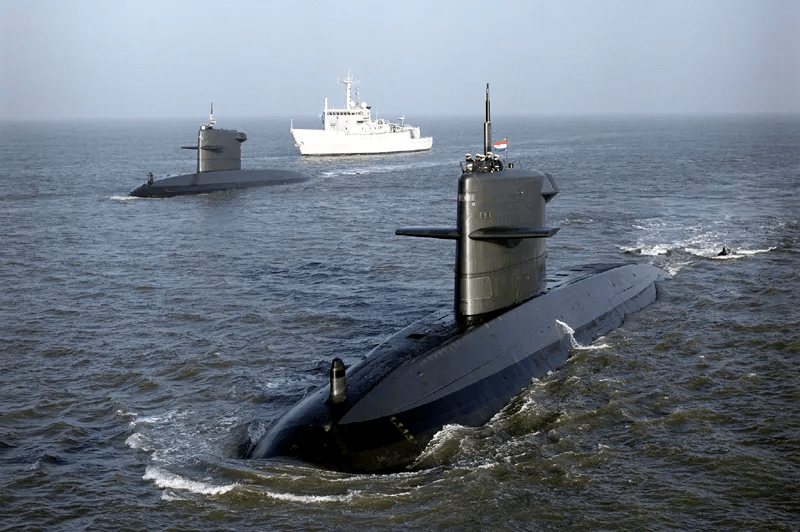Def Min Allows Changes To Navy’s $7 Billion Submarine Tender, But No Changes To Capability Requirements

- The Navy is currently in discussions with German and South Korean companies, and a Spanish shipyard is expected to give a presentation on its capabilities soon.
- According to sources, the Navy has made it clear that it will not approve any changes to the tender that compromise its qualitative requirements.
Clearing the way for the $7 billion deal to build six new submarines for the Indian Navy, the Defence Ministry has approved amendments to the ongoing tender that will allow the project to move forward.
The Defence Ministry has approved amendments to the ongoing tender that would allow the project to move forward, removing a roadblock to the $7 billion deal for the construction of six new submarines for the Indian Navy.
Along with the approvals for the program’s terms and conditions, the Indian Navy has committed to the Prime Minister’s Office (PMO) and the National Security Council Secretariat (NSCS) that the next generation of submarines will be designed in India and will be cleared for exports.
“Amendments to the ongoing tender were approved recently at a high-level defence ministry meeting. These would allow the tender for indigenous submarine construction to proceed “According to government sources, The program’s qualitative requirements have not changed and will remain so in the future, according to the sources.
According to sources, the Defence Ministry has received a proposal to remove the “joint and severe liability” clause from the tender. Before finalising the tender changes, the Defence Ministry sought “proper and detailed” legal advice.
According to India’s defence acquisition procedure, any changes to ongoing tenders must be approved by the Defence Ministry alone.
The tender for six new submarines known as Project 75 India is being processed under the Strategic Partnership policy, which states that the boats will be built jointly by a foreign vendor in collaboration with an Indian firm. The foreign partner would be referred to as a collaborator or supporter, while the Indian partner would be referred to as a strategic partner.
According to the proposal under consideration by the Defence Ministry, the Strategic Partner would be held accountable for its work share, whereas previously this responsibility would have been shared by the foreign partner. The foreign partner is now only responsible and liable for its portion of the project’s work.
According to the sources, there is also a plan to sign a government-to-government contract with the country of the foreign partner chosen as the lowest bidder in the programme.
The Navy had planned to include vendors from France, Russia, Germany, Spain, and South Korea in Project-75 India, in addition to Indian shipyards Larsen and Toubro and government-owned Mazagon Dockyards Limited.
The stringent requirements, however, mainly related to the need for a proven Air Independent Propulsion system that allows the submarines to stay underwater for more than two weeks at a time, resulted in the dismissal of three foreign vendors.
The vendors argued that they would be able to provide required solutions at the time of boat construction, but the Navy insisted on a proven and ‘in service’ solution rather than an under development one, according to sources. According to sources, the Navy has made it clear that it will not approve any changes to the tender that compromise its qualitative requirements.
The Navy is currently in discussions with German and South Korean companies, and a Spanish shipyard is expected to give a presentation on its capabilities soon. The tender would provide a significant boost to make in India in defence, as more than 60% of the project’s value would be invested solely in Indian industry.







Facebook Comments